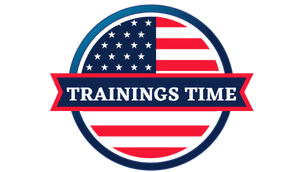Description
RECORDED TRAINING COURSE
Complying with the tax code, tax withholding requirements and deposit schedules for the IRS and one state is complicated enough. But for the multistate employer, multiply this by 5, 10, or 20 or even 50 and it can turn into a payroll department’s nightmare. Add a pandemic to this mix and you can have the makings of a horror movie! Not only are there more rules and regulations to comply with, but the penalties can multiply if mistakes are made.
All payroll professional must know the taxation and reporting requirements for all states where the company has employees working or in the case of reciprocal agreements, living. But for the payroll department that must handle employees who work in multiple states simultaneously or who travel to different states at different times for the employer the taxing and reporting requirements can become an arduous task at best and at worse a total fiasco. Employees working from home can add even more to the complexity! Questions must be answered, sometimes on an employee by employee or even tougher on a case by case basis for an individual employee. Which state income tax is withheld? Does it matter if the employee is a resident or a nonresident of the state? Are there any reciprocal agreements in effect that must be taken into consideration? Which state do we pay the SUI to and what happens if one of the states has disability insurance but the other doesn’t? Or worse yet what if both states require disability insurance to be deducted?
Some employers may even think they have solved this logistics and regulations nightmare by simply withholding the income for and paying the SUI over to the state where the employee lives. And this might appear to be good in theory but in actual practice it is an audit disaster waiting to happen and happen it will. Only if the employee is performing some work in the state in which they live would the employer have a hope of passing the audit for paying the SUI. But when it comes to state income tax audits it won’t even come close. Most states require state income tax withholding for wages paid for work performed in the state. The only ground given in this area is usually for reciprocal agreements and nonresident employees who may be in the state for a limited time. No, the only way to determine the proper taxation for multiple state employees is by researching and apply the requirements for each state. And this is where this webinar will help. This webinar will cover the intricacies and requirements that must be addressed by the multistate employer.
Also, an employer with employees working in multiple states does not just have taxes to deal with. Now there are also wage and hour laws to contend with! In a different (read: higher) minimum wage? Are the overtime rules different? Would that employee still be exempt?
SESSION HIGHLIGHTS:
- How to determine state withholding liability
- Who is a resident
- How reciprocal agreements affect taxation of wages
- Resident and nonresident taxation policies
- The four-factor test for state unemployment insurance
- Income and unemployment taxation of Fringe benefits
- What wage and hour laws must be followed
- How to handle income and unemployment insurance taxation for employees working in multiple states
- How working in multiple states could affect withholding for garnishments
- Withholding requirements when an employee is in a state temporarily
- Which states require the use of their own Withholding Allowance Certificate, which states allow either theirs or the Form W-4, and which states do not have a form
- Reporting wages for multistate employees on Form W-2
- How COVID-19 affects teleworkers who are in a different state
Learning objectives:
By the end of this webinar the attendee will have:
- Gained knowledge of the requirements under wage and hour laws when an employee works in two or more states
- Learned how to handle garnishment withholding for a multistate employee
- Understand how to determine state withholding liability and how it is affected by the residency of the employee
- Gained knowledge in reciprocal agreements and the difference between taxing residents on their worldwide income and nonresidents on the income earned within the state
- A better knowledge of the three calculation methods permitted to determine taxable wages for state income tax including the volume of business ratio method and the time basis method
- A clear understanding of the basics of the four-factor test used to determine the payment of state unemployment insurance
Who Should Attend:
- Payroll Executives/Managers/Administrators/Professionals/Practitioners/Entry Level Personnel
- Human Resources Executives/Managers/Administrators
- Accounting Personnel
- Business Owners/Executive Officers/Operations and Departmental Managers
- Lawmakers
- Attorneys/Legal Professionals
- Any individual or entity that must deal with the complexities and requirements of paying employees in multiple states
Note: You will get access to the Recording link and E-Transcript; in your account and at your registered email address.





